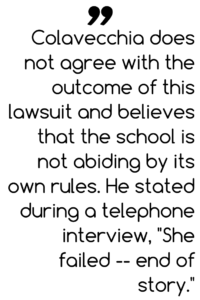A recently filed lawsuit alleges that the State of Arizona denies Medicaid benefits to immigrants that are eligible for the Medicaid benefits that Arizona denies them. The lawsuit, filed on behalf of eligible immigrants who claim that they suffered denial of full Medicaid benefits, alleges that eligible immigrants also received a downgraded status.
In 2012, the office of Arizona Governor Jan Brewer reacted to a federal ruling that determined “Arizona must deny ‘dreamers’ Medicaid.” AzCentral reported that the ruling addressed “Illegal immigrants who receive temporary reprieves from deportation.” The ruling did not seek to deny Medicaid to legal immigrants who met requirements for Medicaid benefits.
Dulce Matuz, who came to the U.S. as a teen said at the time, “What Governor Brewer is trying to do is attack defenseless young children and youth just to gain some political points.”
The most recent action taken by Arizona resulted in the lawsuit. The lawsuit, filed by the William E. Morris Institute for Justice and the National Health Law Program alleges that thousands of eligible immigrants lost their eligibility and received downgraded status making them eligible for emergency-only Medicaid benefits. The suit also claims that the Arizona Health Care Cost Containment System (AHCCCS) admitted to errors discovered in October 2015, yet downgraded immigrants again, denying eligible immigrants the same full Medicaid benefits that other eligible recipients receive. The lawsuit also claims that  the immigrants did not receive proper notification regarding why the AHCCCS denied their renewal of Medicaid benefits.
the immigrants did not receive proper notification regarding why the AHCCCS denied their renewal of Medicaid benefits.
The Centers for Medicare & Medicaid Services states, “Immigrants who are ‘qualified non-citizens’ are generally eligible for coverage through Medicaid and the Children’s Health Insurance Program (CHIP), if they meet their state’s income and residency rules.” However, Centers for Medicare & Medicaid Services also explains, “Refugees, asylees, or LPRs who used to be refugees or asylees don’t have to wait 5 years.”
The Albuquerque Journal published information from the Associated Press, which states that the deputy director of the AHCCS said she could not comment on the pending litigation.
The primary plaintiffs of the lawsuit, filed in U.S. District Court, are Aita Darjee, originally from Nepal and Alma Sanchez Haro. The lawsuit seeks class-action status.




 While no one was injured, the fire left between 30,000-40,000 commuters stranded in Grand Central on that Tuesday evening, as the MTA worked through the night to try and make enough repairs to allow for limited service for the morning commute on the following Wednesday. In the end, serious structural damage led to major delays and disruptions for a few days for the tens of thousands of people who use those lines during each weekday commute. Now, the MTA has warned that they will file a lawsuit against the city of New York.
While no one was injured, the fire left between 30,000-40,000 commuters stranded in Grand Central on that Tuesday evening, as the MTA worked through the night to try and make enough repairs to allow for limited service for the morning commute on the following Wednesday. In the end, serious structural damage led to major delays and disruptions for a few days for the tens of thousands of people who use those lines during each weekday commute. Now, the MTA has warned that they will file a lawsuit against the city of New York.
 One of the defendants, Franco Colavecchia, is a now-retired set design teacher who gave Dickinson an incomplete grade in the spring of 2009. The registrar’s office changed his grade to an F in 2010 because she had not completed the requirements for that course within the academic year. The university has agreed now not to calculate this grade as a part of her GPA. Colavecchia does not agree with the outcome of this lawsuit and believes that the school is not abiding by its own rules. He stated during a telephone interview, “She failed — end of story.”
One of the defendants, Franco Colavecchia, is a now-retired set design teacher who gave Dickinson an incomplete grade in the spring of 2009. The registrar’s office changed his grade to an F in 2010 because she had not completed the requirements for that course within the academic year. The university has agreed now not to calculate this grade as a part of her GPA. Colavecchia does not agree with the outcome of this lawsuit and believes that the school is not abiding by its own rules. He stated during a telephone interview, “She failed — end of story.”


 In the lawsuit, Reich claims that in November of 2014, FedEx driver Crum began tailgating him on Interstate 5 in Southern California. Crum continued to tailgate for several miles before passing Reich at speeds in excess of 55 mph. California has a 55 mph speed cap for semis. While passing him, Crum obscenely gestured at Reich. After passing Reich, Crum abruptly swerved into Reich’s lane and slowed down to 45 mph, causing Reich to brake. Both drivers then pulled over.
In the lawsuit, Reich claims that in November of 2014, FedEx driver Crum began tailgating him on Interstate 5 in Southern California. Crum continued to tailgate for several miles before passing Reich at speeds in excess of 55 mph. California has a 55 mph speed cap for semis. While passing him, Crum obscenely gestured at Reich. After passing Reich, Crum abruptly swerved into Reich’s lane and slowed down to 45 mph, causing Reich to brake. Both drivers then pulled over.



